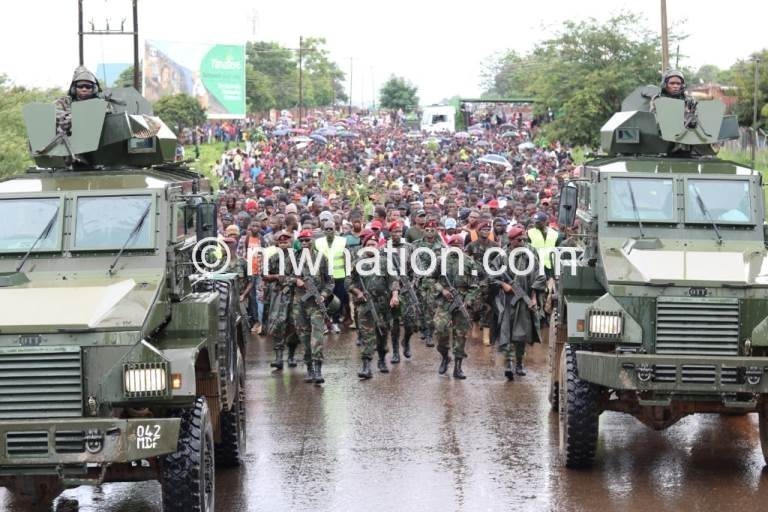Ruling won’t end political impasse—Analysts
The much-awaited Constitutional Court ruling on the presidential elections case, slated for February 3 2020, will only come up with the winner because the problems at hand are beyond this.
This is the view of some analysts we have talked to ahead of the court ruling on Monday.

There have been calls from various stakeholders —ranging from political parties, faith-based organisations and the international community— for people to be peaceful during and after the Constitutional Court (ConCourt) ruling, but the analysts, including Human Rights Defenders Coalition, say calling for peace without addressing the underlying problems will not solve the country’s problems.
HRDC chairperson Timothy Mtambo, in a telephone interview yesterday, said the court ruling itself was not a solution to the problems rocking the country.
“You don’t ask people to be peaceful when the reasons they are angry have not been addressed. The people’s anger is beyond electoral justice. It is time to respond to deep and critical questions regarding the anger that people have.
“The judgement, if it is just, could be the beginning of the end of problems in the country, but if it is not the status quo will continue,” he said.
Mtambo said those who will not be happy with the ruling have the right to appeal to the Supreme Court, and also hold peaceful demonstrations.
“We will continue demonstrating to force Jane Ansah to resign. Do not link demonstrations to the election case. We will continue demonstrating for justice, we will continue to fight corruption, nepotism, regionalism and ethnicity,” he said.
He said there was need to continue the all-inclusive and people-centric dialogue beyond the election case ruling day.
Political and social commentator Humphrey Mvula said the court said lack of dialogue exacerbated political anger in Malawi and blamed President Peter Mutharika for allegedly not rising above being president for the Democratic Progressive Party (DPP).
“He castigated and mocked those who took the election results petitions to court. Following Mutharika’s actions, the election conflict moved from polarisation to segregation and it has now reached a full conflict.
“His action has divided the country. The conflict is not between the 38 percent that voted for him and the 62 percent that did not. The conflict is about regions now. Malawi needs a leader that would unify the country beyond the court ruling,” he said.
Mvula said calling for peace was not enough, the country needs mediation, the country need jobs and the country needs electoral reforms.
The Public Affairs Committee (PAC), a quasi-religious body, initiated dialogue and mediation between various stakeholders with a view to resolve the post-election political impasse in the country.
National initiative for Civic Education (Nice) Trust says people have enough information to desist from engaging in violent acts after the announcement of the elections.
Nice Trust executive director Ollen Mwalubunju said his organisation intensified the campaign against violence and is satisfied that the message has sunk and so they don’t expect violence.
“The information has gone to the people. We have provided enough peace messages. It is up to the people to use it or not.
“I do not think there will be destruction of properties and lives. If people engage in violence it will be because of their attitudes and behaviour,” he said.
Mwalubunju said his organisation has engaged national and community leadership in 22 districts in the country worked with faith-based organisations and aired messages against violence on national radio stations to ensure that the messages get to the people.





